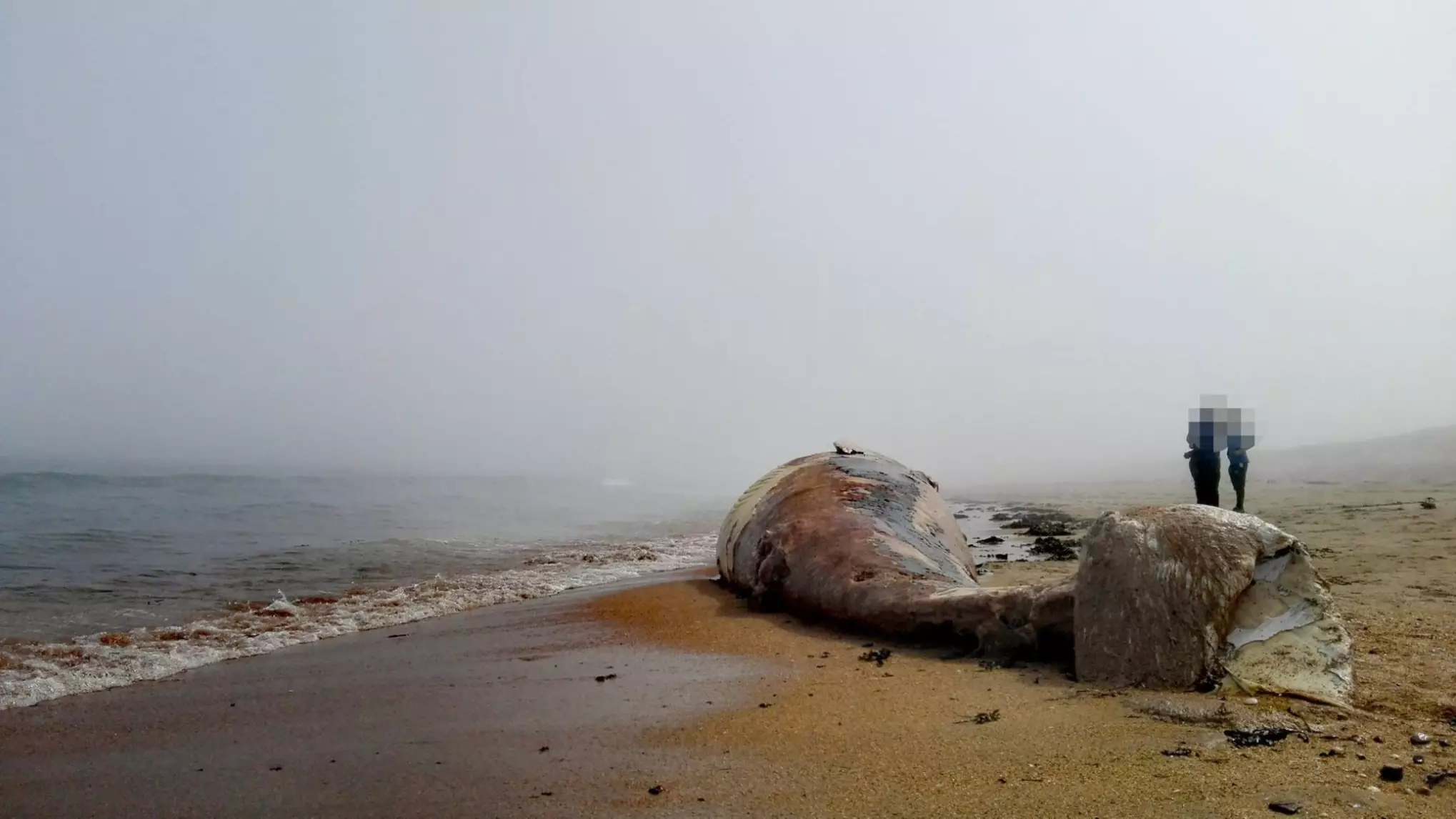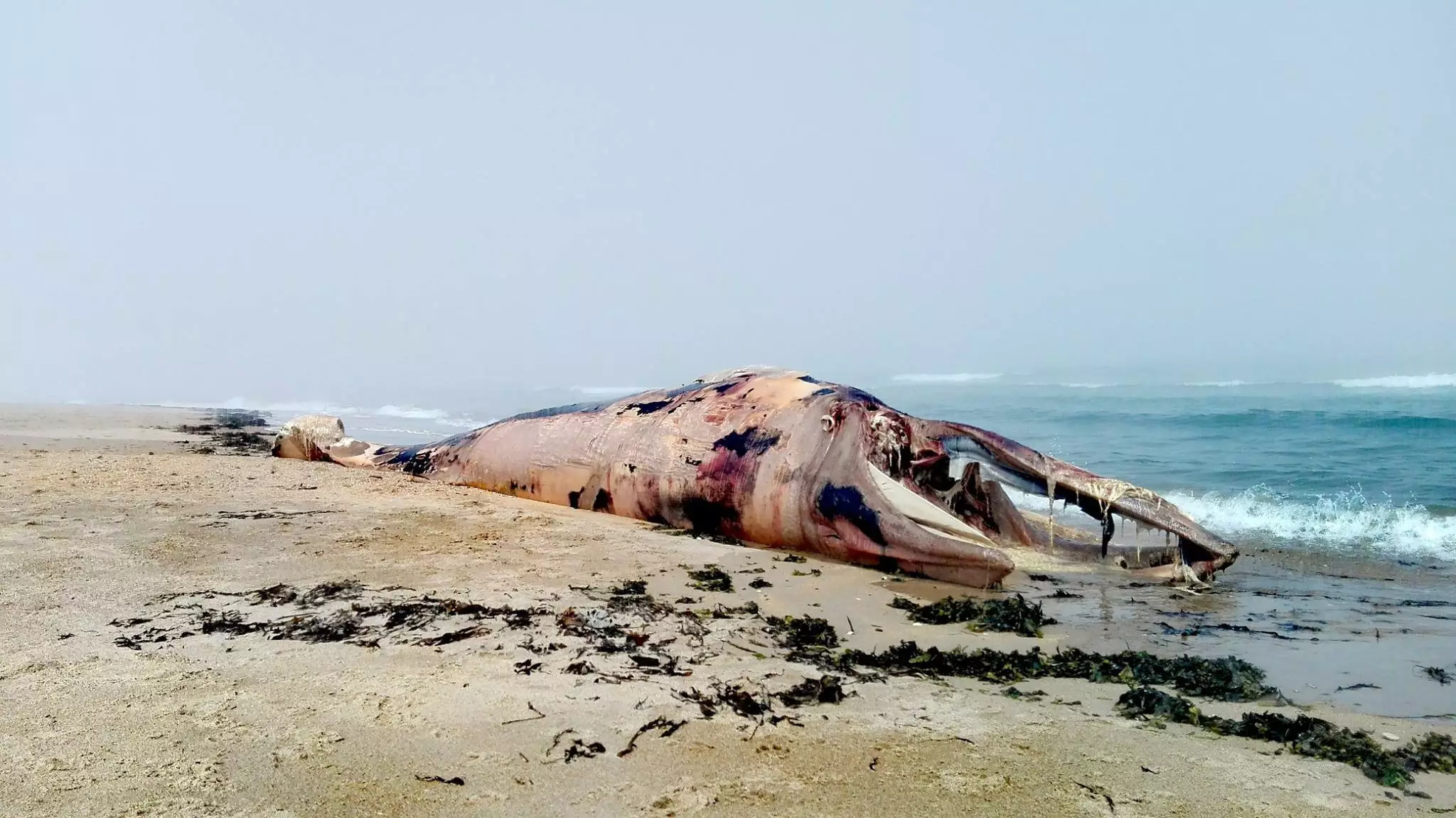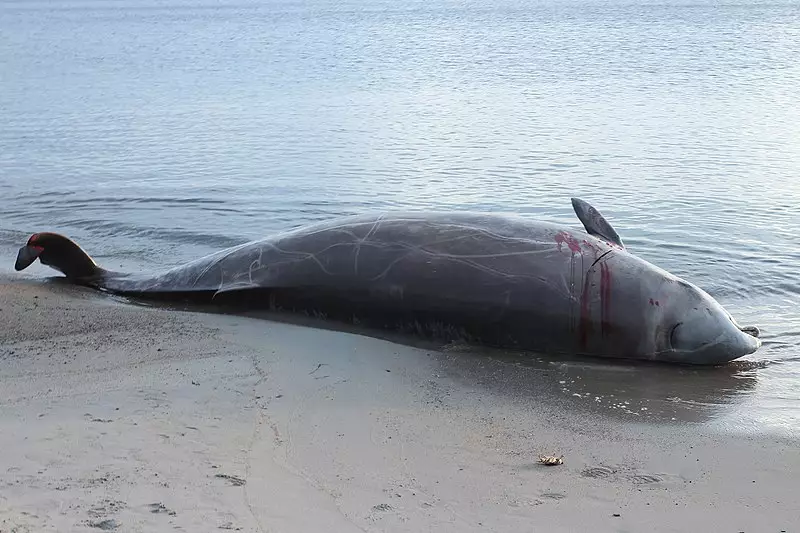
Marine biologists have been left confused and concerned as to why more whales have been stranded on beaches in Scotland and Ireland in the last month than in the previous decade.
Thirty-seven Cuvier's beaked whales have washed up on the shores of Scotland, while 14 more have been discovered on beaches in Ireland, and a further one in Northern Ireland.
All of the whales have washed up since the beginning of August and all show severe signs of autolysis (self-digestion).
Data collected over the past 25 years suggests that on average, 3.2 whales are stranded every year. This obviously represents a worrying upturn in those figures.

Cuvier's beaked whales live at great depths in the waters surrounding Great Britain and Ireland and are particularly sensitive to acoustic disturbances in the waters, leading marine biologists to think that military sonar could be to blame for the deaths.
Nick Davidson, Stranding co-ordinator for the Scottish Marine Animal Strandings Scheme (SMASS), said: "It is unprecedented.
"We don't have any idea what is happening. We probably never will because of the condition of the animals.
"The body condition is advanced decomposition. The state of condition means the tests we can do are limited.
"We can look at the genetics and toxicology and we can check the stomach contents. We haven't found any indication of plastic ingestion - they don't ingest macroplastics.
"We know they get microplastics from food. The amount of damage they cause is debatable, it's fairly early science.
"It's unlikely to cause a massive die-off."

He continued: "They have died quite some time ago and washed up off the coast. These particular species are very susceptible to noise, particularly sonar.
"We know this from cases which have happened elsewhere in the world.
"These animals live about 3km deep to hunt for food, then they come up very slowly.
"If they are exposed to loud noise, it disrupts the animal and they go up too quickly - it's like decompression sickness.
"Unfortunately, the animals which have been found are in such a condition that the finger can't be pointed at anybody."
The job for the scientists now is to ascertain whether all of the whales came from the same place, and whether they all died at the same time, from the same event.
They hope to use data and expertise from oceanographers to track wind and tidal patterns and discover where the whales came from.
A Facebook post from the SMASS said: "Beaked whales, like many cetaceans, 'see' the world through sound, so excessive underwater noise can have potentially disastrous effects on their physiology and behaviour.
"Loud noise can damage the sensitive hair cells in the ear, rendering the animal functionally deaf, or cause gas bubbles to form in the tissues leading to the equivalent of the bends."
Featured Image Credit: SWNS